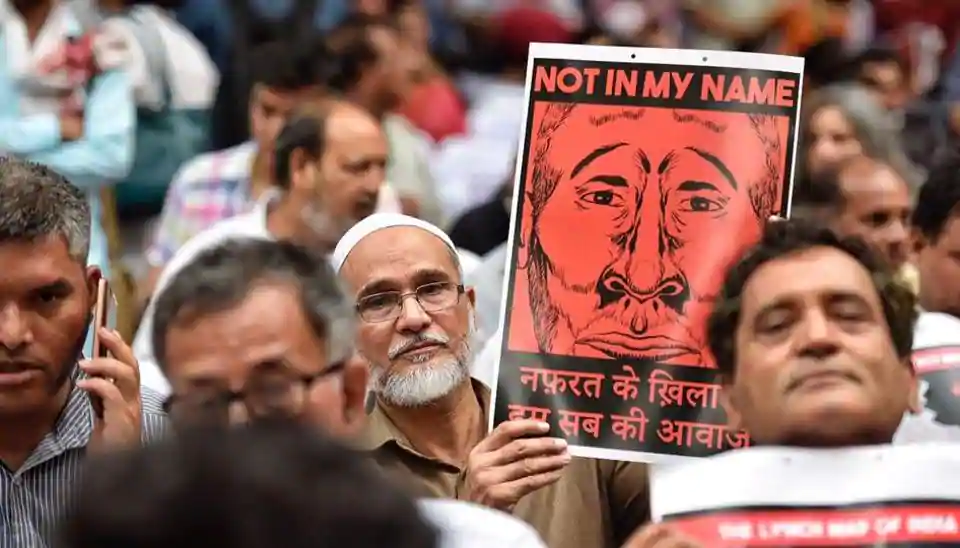“When he came last month, he told me, and mom-dad, that there’s caste discrimination happening there. His friends came to know that he belongs to a scheduled caste, so their behaviour towards him changed. They stopped talking to him, they stopped hanging out with him” – Jhanvi Solank, sister of Darshan Solanki
On February 12, Darshan Solanki, an 18-year-old, first-year student of the Indian Institute of Technology (IIT), Bombay, allegedly died by suicide leaving no note behind. The family alleged that he had faced caste discrimination on campus.
Following the tragic death of Darshan, student bodies across India held protests against the caste based discrimination inside the campus of India’s elite school.
Due to nationwide pressure, eighteen days after suicide, IIT Bombay set up a 12 member panel to probe the death.
The panel, on Monday, March 6, released the findings of their investigation in an interim report which dismissed all casteism claims while stating that ‘the despair of deteriorating academic performance appears to be a very strong reason which might have affected Darshan Solanki very seriously,’ reports The Free Press Journal.
Solanki was a first-generation Dalit student, studying at India’s premier institute. And unfortunately, there has been a pattern of suicide incidents inside the elite campuses of India. It has been found, mostly the students from the Bahujan background ending their lives. Answering to a question in Lok Sabha Union Education Minister Dharmendra Pradhan said that 122 students of IITs, IIMs, IISc and central universities and other centrally funded higher educational institutions committed suicide during the year 2014-21.
According to data shared by the minister, 24 belonged to Scheduled Caste (SC), 41 to Other Backward Classes (OBC), and 03 to Scheduled Tribe (ST). Three such students were from the Minority category.
The data shared by the Ministry of Education the IITs alone recorded 34 suicides between 2014-2021, 18 of the students were from SC and OBC communities.
Given the history and the pattern of suicide in elite schools, suicide committed by Darshan Solanki cannot be seen as an isolated event. In fact, it would not be wrong to say that it’s an institutional murder.
Elite institutions such as IITs, IIMs and IISc are mostly dominated by students of privileged backgrounds. And often students coming from marginalised communities are mocked and humiliated with ‘names’ and terms like ‘freebies’ and ‘reservation category”. In many cases, they are ridiculed and driven to the extent that they end their lives.
The IIT panel’s report shamelessly denied any evidence of caste based discrimination behind Solanki’s death despite multiple testimony available in public records. How convenient is it for the panel to cite academic performance to dismiss the prevalent caste based discrimination inside the campus.
According to an internal survey conducted by the SC/ST Students Cell of IIT-Bombay, over 37% of SC/ST students had reported that they had been asked about their entrance examination ranks with the intention of knowing their identity. This survey, along with another conducted by the institute in collaboration with the Student Wellness Centre, showed the extent of caste-based discrimination that Dalit and Adivasi students face on campus, as reported by The Hindu on March 11/12.
Entrance exams such as IIT JEE, NEET and other University Tests are highly competitive and students from marginalised sections study hard to secure their seats.
The idea of the reservation is also that, people who did not get the chance and resources should get the opportunity to come and study. But Sarvana has been always ridiculing the struggles of Bahujans.
Students from SC, ST community come from vernacular backgrounds, and live in villages far from cities and mainstream. With limited resources and almost no guidance they crack India’s one of the toughest exams.
Bahujan are not scared of competitions or studies. They are hardworking and they know only education can advance them. What does not work is the hostile and discriminatory environment of these elite schools. The truth is that these universities and their Meritdhari professors along with the privileged students deliberately fail to create a safe and sensitive environment for the Bahujan.
This pedagogy and their psychology haven’t changed to see the dreams and aspirations of these students along with their struggles.
What leads Darshan to commit suicide is not academic performances but the constant humiliation. The Casteist Environment of the IIT Bombay, has failed Darshan.
If you or someone you know is experiencing thoughts of suicide, we urge you to seek help. Please call one of the helpline numbers listed here or contact a mental health professional.



